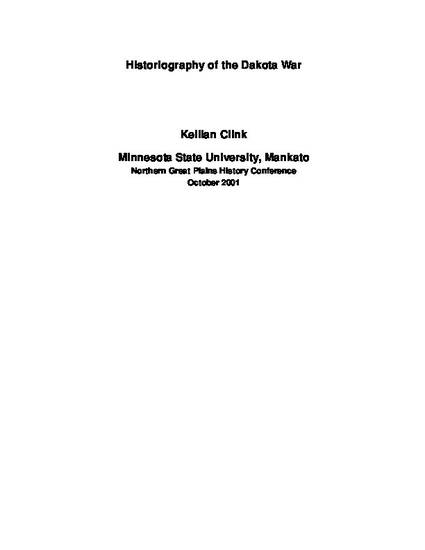
I am honored to be allowed to address this group today. I am a librarian by trade and a historian by avocation. I have been studying history for something like 20 years as a student and a lay reader and am interested how history has changed during that period, but more generally, how it has changed and is changing throughout the history of our state. To this end, I decided to study a relatively finite event, the Dakota War, from the beginning of Minnesota’s historical writings to the present. My hypothesis was that I would find both overt racism as well as an unspoken, underlying view of the Dakota as a problem to be eliminated in order that European settlers might farm and prosper in peace. An article that summed up what I expected to find was by William Robbins. He noted in his article “Conquest of the American West: History as Eulogy: “The European invaders not only attempted to destroy American Indians and their culture; they also created in the process their own imperial histories to justify their dispossession of the American Indian. Whether as tenantless wanderers or as a menace to the invading European, Indian people are usually are described as obstacles who had to be sacrificed in the name of Progress and the advancement of Civilization…So, the American Indian is doubly damned. Freely exploited by the invading European --- in many cases exterminated—then, to add insult to injury, Indians were made nonpersons in the conquerors written history.” (Robbins 8) Priscilla Russo, a Mankato native and PhD in history wrote in 1976 "the concept of civilization versus the Collections of the Minnesota State Historical Society and the Minnesota History journal as my sample to look at how history has changed during the last 130 years—only 37 articles all total. I found more balanced coverage of the events that I expected, and found the Dakota perspective represented more than I anticipated, both in their own words and in the understanding of their position from the lips of whites.
